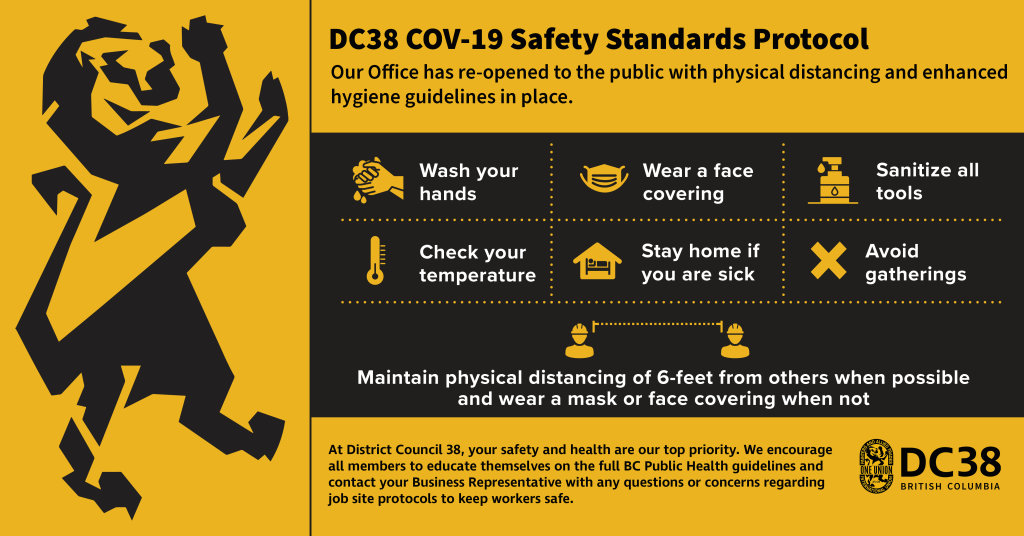Members can make payments via cheque, money order, interac e-transfer, or cash. Please be reminded that Dues and Health & Welfare payments must be kept separate (they cannot be combined into one payment).
Cheques & Money Orders
Cheques and Money Orders can be submitted in one of three ways: Mail, In-Person, or through the front door. If you are submitting payment for both Dues and Health and Welfare, two separate cheques are required.
Mail: Please send your cheques to 7621 Kingsway, Burnaby, BC V3N 3C7. To reduce the chance of COVID-19 transmission, please seal your envelope with water or tape. If the cheque is written by someone other than the member, please put the member’s name on the cheque’s memo line, or on a piece of paper included with the cheque.
In-Person: Payments can be brought to our office during regular business hours for processing and a receipt. Please see the contact information at the end of this page for office hours and physical distancing protocol.
Front Door Mail Slot: If you would like to drop your cheque or money order off at our office, you can deposit it through the mail slot in our front door. Please be sure it is in a sealed envelope with your name on the front, and indicate on the envelope if you would like a receipt mailed to you.
E-Transfers
If you would like to send an E-Transfer for your payment, please contact us at 604-524-8334 and ask for the instructions with the security question and answer. Please do not choose your own security question and answer, as doing so will generate additional work for our office.
Cash
Cash payments can be made at our office only. Please DO NOT put cash payments through the mail slot as we will not be able to guarantee the value of these payments. Doing so will be at your own risk.

